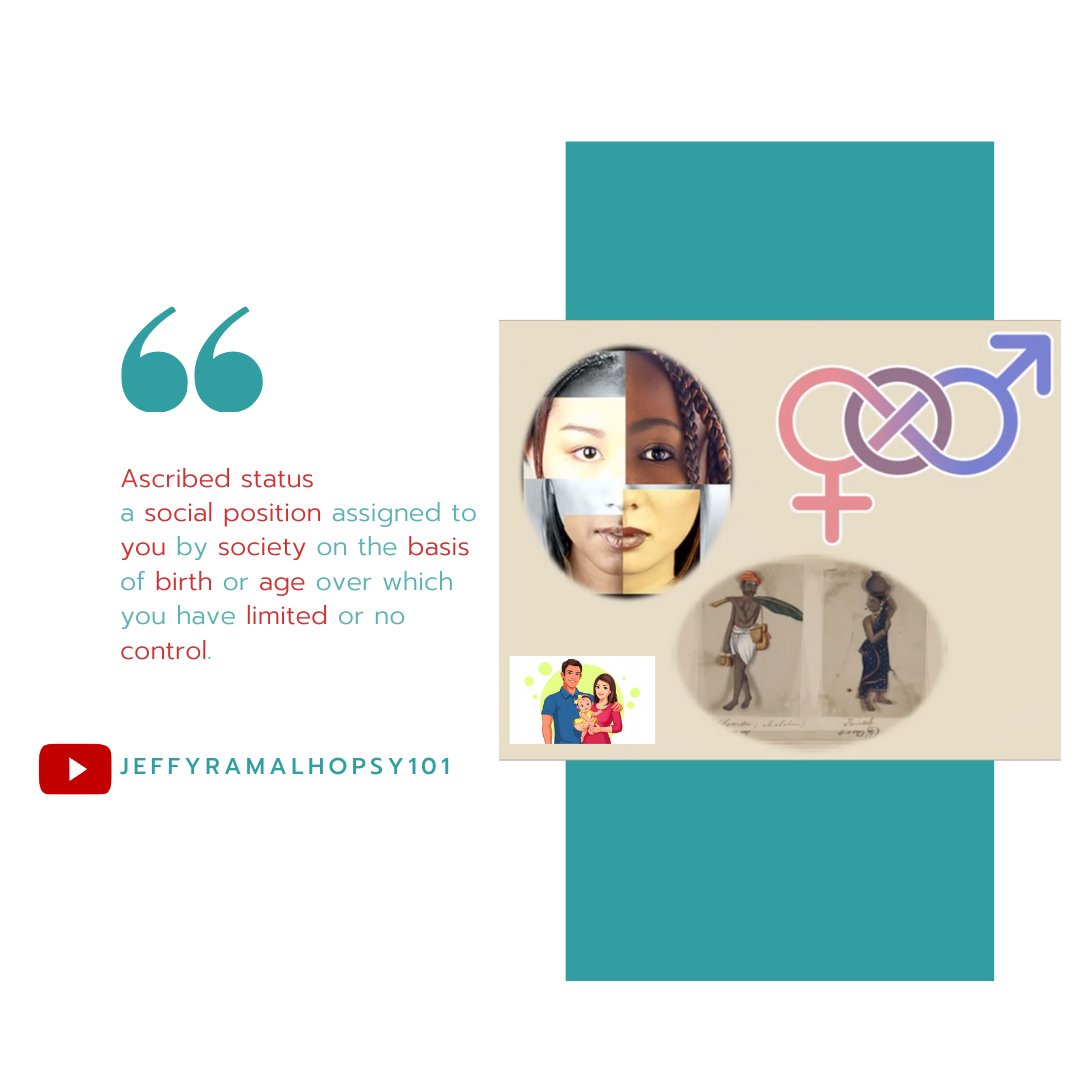Ascribed social status refers to the social position a person is assigned at birth or takes on later in life due to circumstances beyond their control. These circumstances can include factors such as race, ethnicity, nationality, religion, and family background. Unlike achieved social status, which is based on a person's actions, abilities, and accomplishments, ascribed social status is largely predetermined and can have a significant impact on a person's life chances and opportunities.
One of the most significant examples of ascribed social status is the concept of race. Race is a social construct that has been used to divide people into distinct groups based on physical characteristics such as skin color, eye shape, and facial features. In many societies, race has been used to justify discrimination and oppression, with certain races being considered superior to others. This has led to significant disparities in areas such as education, employment, and health, with people of color often facing greater challenges and barriers than their white counterparts.
Another example of ascribed social status is ethnicity, which refers to a person's cultural heritage and the group to which they belong. Like race, ethnicity can be used to discriminate against and marginalize certain groups, often leading to social and economic disadvantages. For example, some ethnicities may be more likely to experience poverty, discrimination, and limited access to education and employment opportunities.
In addition to race and ethnicity, ascribed social status can also be based on factors such as nationality, religion, and family background. For example, a person's nationality can impact their social status and opportunities in various ways, such as determining their access to certain countries and the privileges or restrictions they may face within them. Similarly, a person's religion can also influence their social status, with some religions being more prevalent or accepted in certain societies than others. Finally, a person's family background can also play a role in their ascribed social status, with some families having more wealth, power, and prestige than others.
Ascribed social status can have a significant impact on a person's life chances and opportunities. For example, people with higher ascribed social status may have greater access to education, employment, and other resources, while those with lower ascribed social status may face more barriers and challenges. This can create a cycle of disadvantage, with people of lower social status being less likely to achieve upward mobility and those of higher social status being more likely to maintain their privileged position.
In conclusion, ascribed social status refers to the social position a person is assigned due to factors such as race, ethnicity, nationality, religion, and family background. This status can have a significant impact on a person's life chances and opportunities, and can contribute to cycles of disadvantage and privilege. Understanding the role of ascribed social status is important for promoting social justice and equality, and for creating a more inclusive and fair society.


:max_bytes(150000):strip_icc()/achieved-status-vs-ascribed-status-3966719-ADD-FINAl-V2-c26adb2e1c40488b83e58076ffb63ac1.png)




